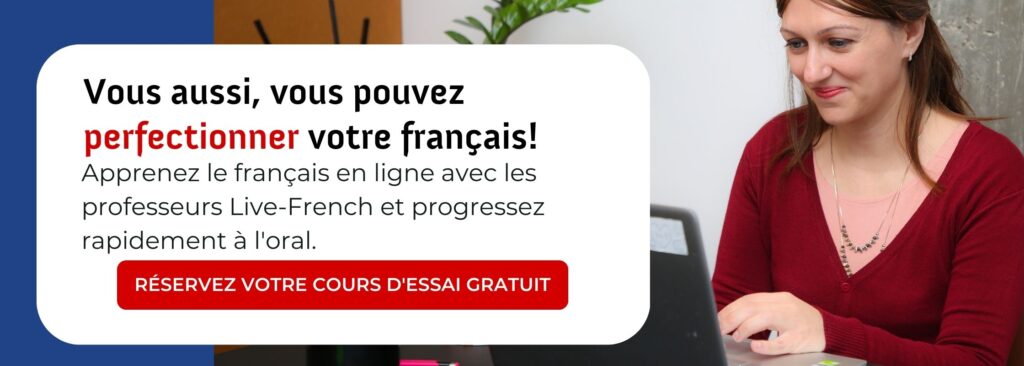Last updated on December 19th, 2023 at 07:21 am
If you’re doing business in French, you probably know that meetings in French are quite challenging. To make sure you have a successful meeting in French, it’s not a bad idea to learn common expressions and useful vocabulary.
Here is our advice to prepare a meeting in French and make it a successful one. Practicing your business French is the key to handle your meetings with confidence.
Before a meeting in French
It’s common practice to send a meeting invitation (un avis de convocation) and / or the meeting agenda (un ordre du jour) to the participants. Their attendance could be optional (facultative) or compulsory (obligatoire).
The different items are usually presented in a concise way like:
-Communication interne
-Communication externe
-Votation
-…
The meeting in French and key vocabulary
Getting started :
Thank the participant for coming. “Je vous remercie d’être là” for example is a good way to start the meeting.
The agenda:
Introduce the purpose of the meeting and its objectives. You can use expressions like “Passons à l’ordre du jour” or “Le premier point de l’ordre du jour concerne…”. You could also start with a round table (“un tour de table”).
In order to ask someone to talk about a topic, you can say “Je passe / je donne la parole à….”
Voting :
In some meetings, you need to vote certain decisions. You have people for (“pour”) and people against (“contre”).
“Si la majorité est pour, la résolution peut être adoptée. Si la majorité est contre, elle doit être rejetée.”
To conclude :
At the end of the meeting, make sure to thank the participants and schedule a follow up meeting.
Useful French Expressions in a Meeting
To give your opinion or your viewpoint:
-Je pense que… / je ne pense pas que…
-Je crois que …. / je ne crois pas que…
-Je trouve que…
-J’ai l’impression que…
-Selon moi … / Pour moi …
-À mon avis…
-En ce qui me concerne…
-Quant à moi…
-Je suis persuadé que…
-Je n’en ai aucune idée
-Je n’ai pas d’opinion (sur le sujet, sur la question)
To express that you agree:
-Bien sûr !
-évidemment
-Vous avez raison / vous avez entièrement raison
To make a point that you don’t agree:
-Je ne suis absolument pas d’accord
-Vous avez tort
-Ce n’est pas exactement mon avis
To ask for your colleague’s point of view:
-Qu’en pensez-vous ? / Qu’est-ce que vous en pensez ?
-Pouvez-vous me donner votre avis sur le sujet ?
-Comment voyez-vous les choses ?
If you get interrupted (and you still have something to say):
-Je n’ai pas fini (terminé) s’il vous plaît / je vous prie
-Laissez-moi finir (terminer) s’il vous plaît / je vous prie
-Un instant s’il vous plaît / je vous prie
-Je voudrais encore dire que…
-Je voudrais ajouter que…
-Si je peux continuer/ poursuivre…
To make sure you understood well:
-Je ne suis pas certain de vous avoir bien compris
-Que voulez-vous dire par là ? Qu’entendez-vous par là ?
-Pouvez-vous préciser…. ?
-Pouvez vous expliquer ce que vous voulez dire ?











